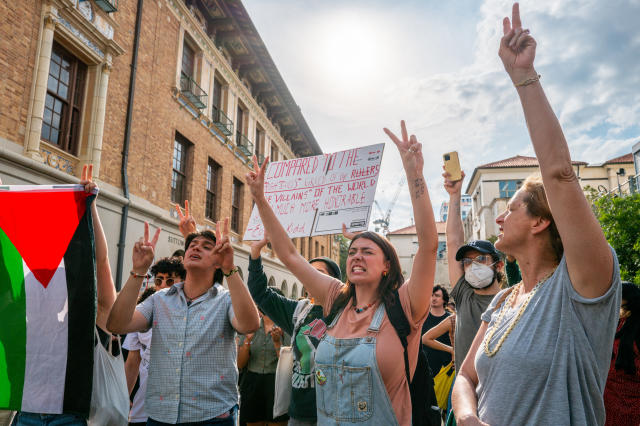The University of Texas Protest: A Call for Divestment and Change
Recent protests at the University of Texas at Austin have drawn attention to students’ demands regarding the university’s investments and its stance on the conflict between Israel and Hamas in Gaza.
Background
The protests, which have been ongoing for over a week, intensified on April 24 when police officers used pepper spray to disperse demonstrators who had set up encampments on the South Lawn of the campus.
Demands
The protesters, organized by the Palestine Solidarity Committee, are calling for the university to divest from companies involved in manufacturing weapons used in the conflict and for the resignation of university President Jay Hartzell.
Context
Similar protests have been taking place at universities across the country, echoing a broader call for justice in Palestine. These demonstrations follow in the footsteps of student activism seen at institutions like Columbia University and the University of Southern California.
Response
Texas Governor Greg Abbott issued a firm statement rejecting the protesters’ demands, vowing that they “will NEVER happen.” He emphasized that law enforcement will be used to swiftly address any illegal protests that violate state laws and university policies.
Controversy
While the university claims that protesters were arrested for breaking institutional rules related to peaceful protests, organizers argue that the arrests and use of force by police were unwarranted and escalated the situation.
Conclusion
The protests at the University of Texas at Austin reflect a growing movement among students advocating for change in response to the ongoing conflict in Gaza and the university’s investment practices. The clash between protesters and authorities underscores the tensions surrounding these issues on college campuses across the United States.















































